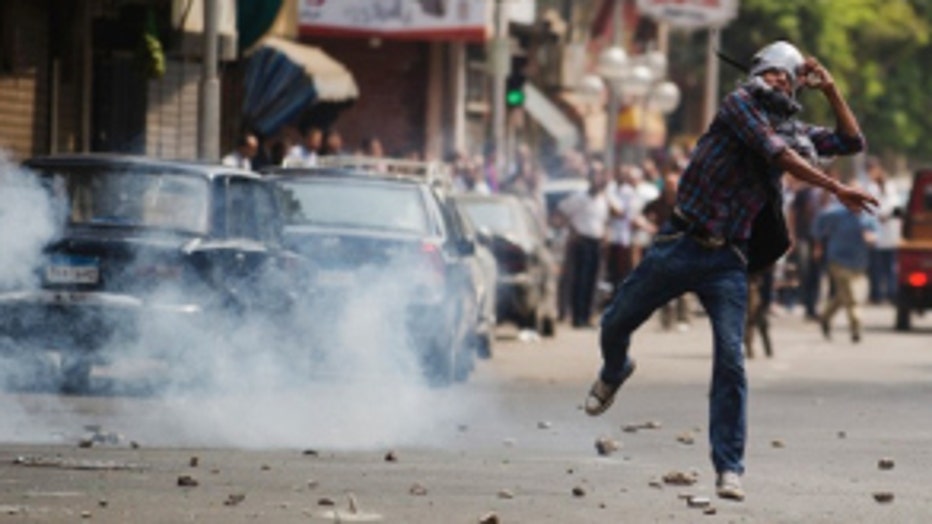Violence spreads across Egypt as death toll rises to 150
CAIRO – Deadly clashes and sectarian tensions spread across Egypt on Wednesday after security forces stormed two Cairo sit-ins, killing scores of supporters of deposed Islamist President Mohamed Morsi.
The interim government declared a state of emergency as battles between Morsi loyalists and police erupted in Cairo, Alexandria, Aswan and in smaller towns and villages. Public buildings were set ablaze and Egyptian media reported churches were attacked in a number of provinces as Islamists blamed Christians for backing the army.
The government, appointed last month after a coupoverthrew Morsi and his Muslim Brotherhood movement, accused Islamists of instigating bloodshed by shooting at police. The Brotherhood said police fired live ammunition at peaceful protesters, who fled in panic down streets and alleys engulfed in tear gas and scattered with bullet casings.

Military uses tear gas to disperse rock-throwing crowds. (Screen Grab)
The Health Ministry reported 149 people had been killed in Cairo and more than 875 injured. The Brotherhood claimed at least 300 people had died and more than 2,000 were injured. A 7 p.m. curfew was imposed in Cairo and other governorates.
"What has happened since 6 this morning till now is a massacre; no one burns an entire country just to disperse a sit-in," said Mohammed Saeed, an accountant who quit work more than a month ago to join the pro-Morsi demonstrations.
The most intense clashes raged around the perimeter of a pro-Morsi sit-in at Rabaa al Adawiya mosque. Police unleashed tear gas and automatic weapons as security forces advanced toward the mosque and engaged protesters throwing rocks and firing slingshots and homemade weapons.
Police backed by armored personnel carriers cleared a smaller pro-Morsi protest across the Nile at Cairo University. Demonstrators from that sit-in and from other protests around the capital marched toward roads and bridges leading to Rabaa, which was engulfed in tear gas.
"We came to rescue the women and children,” said Jihan Ibrahim, an English translator who had come from home when she saw images of Rabaa on television. "They are shooting them with bullets and weapons that are only used during war and they are shooting to kill."
For more on this LA Times story, click here.

